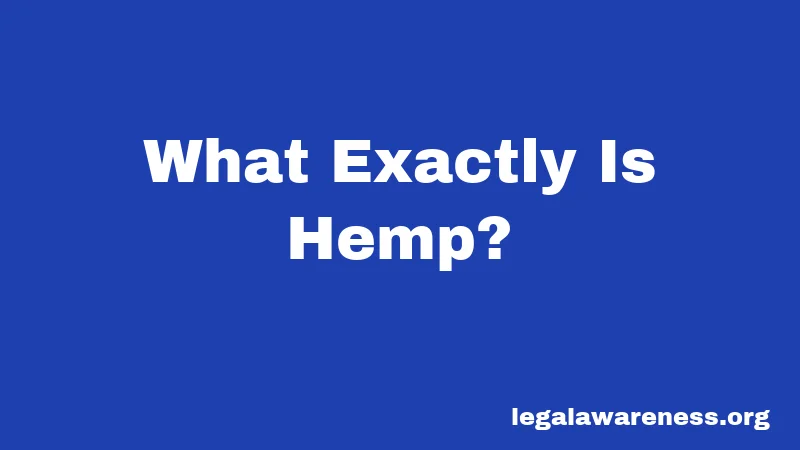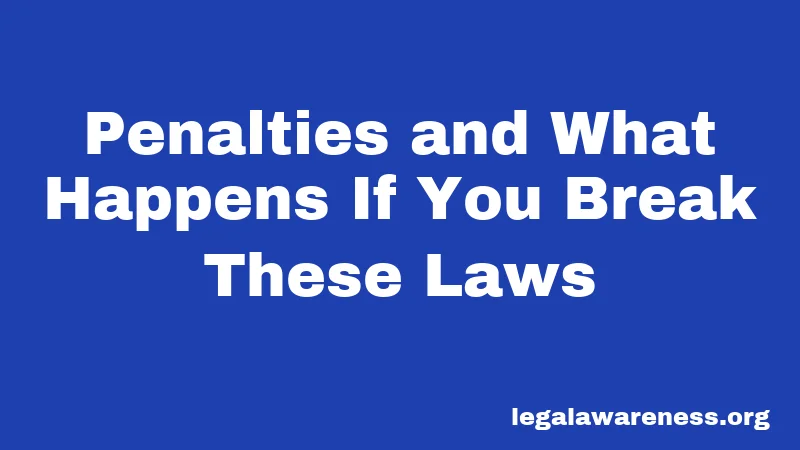California Hemp Laws in 2026: Everything Just Changed
Most people have no idea that California hemp laws just got way stricter. Seriously. And if you sell, buy, or use hemp products, this affects you right now.
Here’s the thing. In January 2026, big changes are happening. The state basically said: “No more loopholes.” If you’re confused about what’s legal and what’s not, you’re not alone. Let’s break this down so it actually makes sense.
What Exactly Is Hemp?

Okay, let’s start with the basics. Hemp is a plant that comes from cannabis. But it’s different from the recreational cannabis you might be thinking about.
Hemp contains very low amounts of THC (that’s the stuff that makes you feel “high”). By law, hemp has to have 0.3% THC or less on a dry-weight basis. Think of it like this: it’s the same plant as cannabis, but with almost no psychoactive effects. The government allows hemp because it can be used for many things, including food, oils, and wellness products.
For years, hemp products existed in a gray area. Companies found loopholes. They sold hemp products that technically followed federal law but skipped California’s strict safety rules. Not anymore.
The New Rules Starting January 1, 2026
Here’s What Changed (It’s Important)
Governor Gavin Newsom signed a law called AB 8 in October 2025. It becomes active on January 1, 2026. This is probably the biggest shift in California hemp rules in years.
Stay with me here. The basic rule is simple: hemp products used in food, drinks, or supplements now need to be 99%+ pure CBD or CBN isolates. No THC. No synthetic cannabinoids. That’s it.
But wait, it gets stricter. Let me explain what that actually means for products.
Products With Edibles and Drinks
You know those hemp gummies, drinks, and snacks? They’re changing. Starting January 1, 2026, any hemp product you eat or drink has to be basically pure CBD or CBN. Nothing else mixed in. No detectable THC whatsoever.
Many products currently on store shelves will become illegal. Confused about whether your hemp drink is legal? The safest bet is checking with the seller or looking for the California Department of Public Health registration.
The Smokable Hemp Ban
Okay, this one’s big. You can no longer buy or sell hemp flower or hemp prerolls in California. Done. Starting January 1, 2026, it’s illegal.
This includes:
Hemp flower by itself. Hemp prerolls (rolled hemp joints). Any smokable hemp product with hemp-derived cannabinoids.
Why? The state basically said these products look too much like cannabis and are too easy for young people to access. They decided the safest move was to ban them entirely.
Synthetic Cannabinoids Are Completely Banned
Here’s where it gets serious. Synthetic cannabinoids (sometimes called “K2” or “spice” products) are now 100% illegal. No exceptions. Not in food. Not in drinks. Not in anything.
Why the hard line? Synthetic cannabinoids have caused serious health problems. People have ended up in hospitals. Some experienced extreme anxiety, rapid heart rate, and other scary symptoms. California said: “This stops now.”
What About Online Sales?

Listen, this is where a lot of confusion happens. California just passed another law called SB 378. It takes effect July 1, 2026.
Here’s what it does: Online marketplaces that sell hemp products (like websites, apps, and social media platforms) now have to verify that sellers are actually licensed. If they don’t verify, they have to post a clear warning to customers.
Think of it like this. You’re on a website and see hemp products for sale. The site now needs to either confirm the seller has a license or tell you upfront: “Warning: This seller is not licensed and their products might be unsafe.”
If online platforms ignore this rule, they can face serious penalties. Lawsuits. Fines. Even shutdowns. So major websites are already cracking down.
This affects direct-to-consumer hemp e-commerce. By January 1, 2028, anyone selling hemp directly online will need the same licenses and testing as brick-and-mortar stores.
Out-of-State Sellers Now Have to Register
Wondering if this applies to you? Here’s what’s new.
If you make hemp food or drink products out of state and sell them in California, you now have to register with California’s Department of Public Health. This is the same requirement that in-state makers already had. The state basically leveled the playing field.
This means fewer unlicensed products slipping through the cracks. Better for consumers. Tougher for bad actors who were trying to skirt the rules.
Penalties and What Happens If You Break These Laws

Let’s talk about the consequences. Because honestly, they’re not small.
If you sell or distribute hemp products that don’t meet the new standards, the California Department of Public Health can seize your products and destroy them. No compensation. They’re gone.
If you sell inhalable hemp products or synthetic cannabinoids after January 1, 2026, you could face criminal charges. We’re talking misdemeanors. You could face fines and potentially jail time.
For online marketplaces that knowingly sell illegal hemp products, the state can file lawsuits. Private citizens can sue them too. The penalties can be steep, especially if the products caused harm.
Think of it like a traffic ticket, but more serious. A single violation could cost you thousands of dollars plus legal fees.
Special Cases and Exceptions
Hemp for Medical Use
Medical cannabis is different. If you have a doctor’s recommendation and a valid patient ID, you can still access cannabis products through licensed dispensaries. The new hemp rules don’t change that.
But here’s the catch. Those products have to come from the licensed cannabis market. Black market or unregulated products? Still illegal, regardless of medical need.
Food and Cosmetics
Non-intoxicating hemp products (like hemp seed oil or hemp-based cosmetics) that don’t have THC? Most of those are still legal. The rules mainly target products that could give you a “high” feeling or contain synthetic cannabinoids.
But cosmetics and body products are still regulated. They need to be properly labeled and safe for human use.
Pet Cannabis Products
Here’s something new. As of January 1, 2026, the state now officially allows pet cannabis products. Vets can recommend cannabis for pets with conditions like arthritis or anxiety.
But—and this is important—these products must come from licensed dispensaries. Same rules apply. No black market pet products.
How to Know If Your Hemp Products Are Legal
Pretty straightforward here. Honestly, this is the part most people miss.
First, check the label. Look for registration numbers from California’s Department of Public Health. Licensed hemp manufacturers have to include this information. If you don’t see it, that’s a red flag.
Second, buy from licensed dispensaries or registered sellers. These businesses have gone through background checks and testing requirements. They’re accountable if something goes wrong.
Third, if it’s a food or drink product, it should clearly state the CBD or CBN content and confirm zero detectable THC. If the label is vague or doesn’t list contents? Don’t buy it.
Fourth, be skeptical of products sold on sketchy websites or from unlicensed sellers. If it seems too cheap or too easy to find, there’s probably a reason.
What Should Consumers Do Right Now?
Okay, real talk here. If you currently use hemp products, pay attention.
Check what you own. If you have hemp smokables or full-spectrum hemp products, they’re about to be illegal. You might want to use them up before January 1, 2026, or dispose of them safely.
If you want to switch to legal hemp products, start looking at licensed dispensaries now. Give yourself time to find products you like.
If you’re thinking about buying hemp online, wait for the SB 378 rules to fully take effect. By mid-2026, websites should be clearer about which sellers are licensed and which aren’t.
If you use hemp for medical reasons, talk to your doctor or a licensed dispensary. They can help you find compliant products that actually work for you.
What About Businesses That Sell Hemp?
If you run a hemp business in California, this is serious. You need to understand these changes or face real consequences.
Starting January 1, 2026: All hemp edibles, drinks, and supplements must be 99%+ pure CBD or CBN isolates with no THC or synthetics. If you’re currently selling other types of hemp products, you have a few weeks to pivot or stop selling.
After July 1, 2026: If you sell online, make sure your platform complies with SB 378. This means verifying seller licenses or posting clear warnings.
By January 1, 2028: All online hemp sales need to follow the same licensing, testing, and tracking requirements as physical stores. This is coming whether you like it or not.
If you’re an out-of-state hemp maker selling to California: Register with California’s Department of Public Health. It’s required. Do it now, before January 1, 2026.
Bottom line? If you’re in the hemp business, get a lawyer who understands these laws. The penalties are too high to guess.
Frequently Asked Questions
Is all hemp illegal in California now?
No. Hemp with no detectable THC is still legal. CBD and CBN isolates are legal. It’s intoxicating hemp products and synthetic cannabinoids that are now banned. Non-intoxicating hemp products like hemp seed oil are still fine.
Can I still buy CBD products in California?
Yes, but only if they meet the new standards. CBD isolates with 99%+ purity and zero detectable THC are legal starting January 1, 2026. Just buy from licensed sellers to be safe.
What’s the difference between hemp and cannabis in California?
Hemp is legally defined as cannabis with 0.3% THC or less. Cannabis products (recreational or medical) are sold through licensed dispensaries and are more heavily regulated. Hemp used to exist in a gray area, but now it’s almost as regulated as cannabis.
Why did California make these laws so strict?
The state found that many intoxicating hemp products were sold without safety testing. Kids could buy them easily. Some products caused serious health problems. The state decided to close the loopholes and protect consumers, especially young people.
Will these laws change again?
Possibly. California lawmakers are always working on new cannabis and hemp legislation. But AB 8 is now law, and the major changes start January 1, 2026. Stay updated by checking the California Department of Cannabis Control website.
Final Thoughts
California just transformed its hemp market. The days of hemp products existing in legal gray areas are over. Starting January 1, 2026, the rules are clear, strict, and enforced.
If you use hemp products, understand what’s legal and what’s not. Buy from licensed sellers. Check labels carefully. When in doubt, ask someone who knows the law.
If you sell hemp products, get compliant immediately. The state has the tools to fine you, seize your products, and shut you down. It’s not worth the risk.
The bottom line? California is saying: “We want a safe hemp market.” That means stricter rules, more testing, and less room for bad actors. For honest consumers and businesses, this is probably a good thing.
Stay informed. Ask questions. Check official sources. And remember, if you’re unsure about something, a lawyer who specializes in cannabis law can give you clear answers.
References
Official State Resources:
- California Department of Cannabis Control (DCC) – Official state regulatory agency for cannabis and hemp products
- California Department of Public Health – Industrial Hemp Enrollment and Oversight (IHEO) – Regulates hemp products and manufacturers
- Assembly Bill 8 (AB 8) Text and Information – The major hemp regulation law effective January 1, 2026
Recent Law Updates:
- Governor Newsom’s October 2025 Press Release on AB 8 – Official announcement of AB 8 and hemp law changes
- Senate Bill 378 (SB 378) Information – Law regulating online hemp and cannabis sales, effective July 1, 2026
Legal Analysis and Updates:
- California AB 8 Changes Effective January 1, 2026 – Cannabis Law Report’s detailed breakdown of AB 8 requirements
- AB 8 & SB 378 Reshape Hemp and Cannabis Commerce – Manzuri Law’s comprehensive guide to both new laws
News and Updates:
- California 2025 Legislative Update: Cannabis, Hemp, Psychedelics – Summary of major 2025 hemp and cannabis legislation
- New California Laws in 2026: Hemp Regulation – News coverage of January 1, 2026 hemp law changes
Disclaimer: This article provides general information about California hemp laws as of January 2026. Laws change, and specific situations may vary. Always verify current regulations with the California Department of Cannabis Control or consult a lawyer for legal advice specific to your situation. This is not legal advice.
